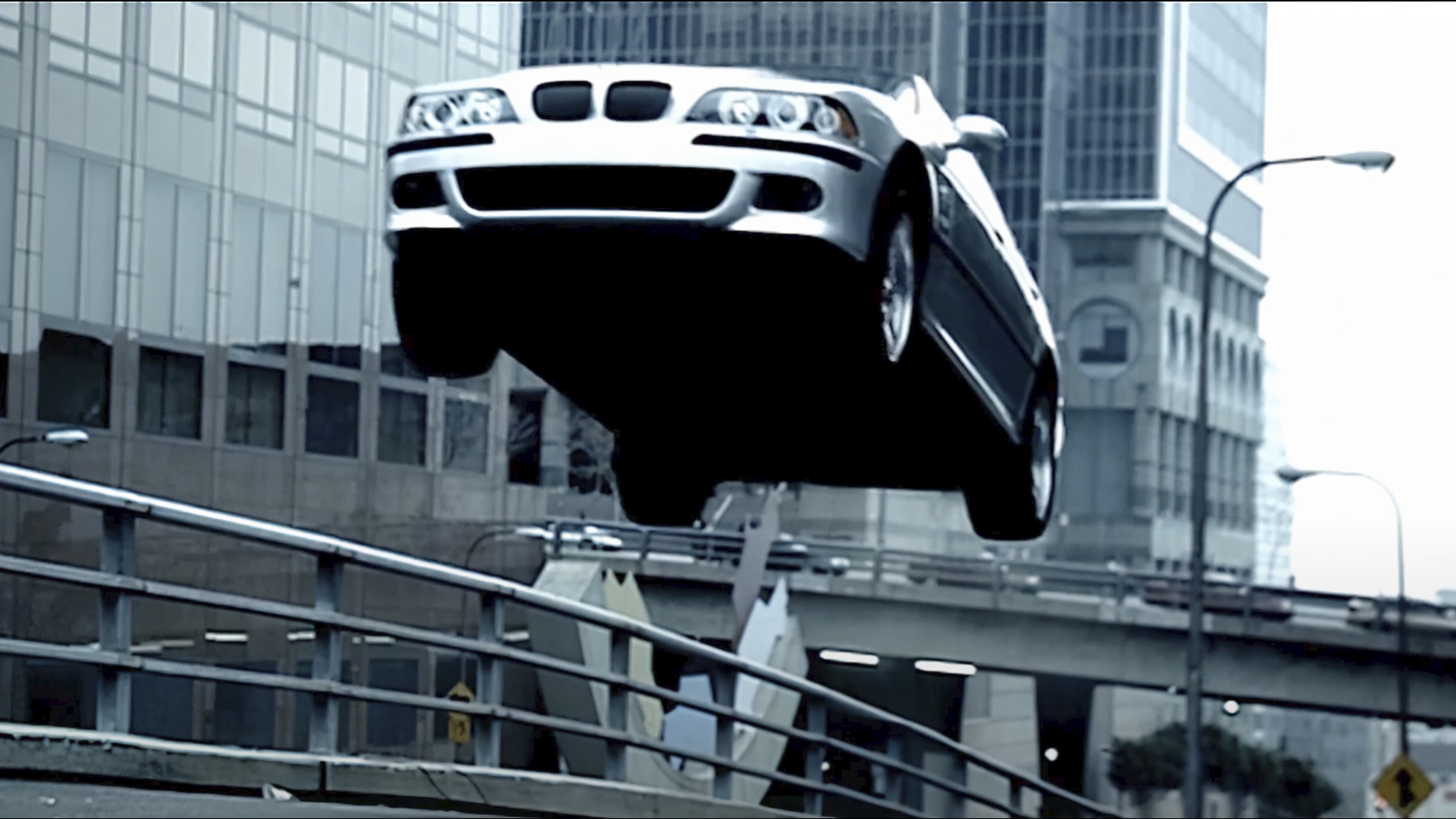Over the years, automotive advertising has delivered some unforgettable moments. However, it has also given rise to campaigns that are complete disasters.
As a lifelong car enthusiast, I’ve compiled a list of the most shocking instances where car companies got it horribly wrong. While some ads are blatantly offensive, others are downright dangerous.
These examples leave you wondering about the discussions that must have occurred in those marketing meetings.
1. Audi’s Chinese Wedding Commercial
In 2017, Audi released an ad in China that sparked outrage for its depiction of a mother-in-law inspecting her future daughter-in-law as if she were a used car.

During the wedding ceremony, the mother-in-law examined the bride’s teeth, ears, and nose in an objectifying manner. The ad faced massive backlash for its blatant sexism, forcing Audi to issue an apology and remove it.
2. Skoda’s Groom Options Ad
Skoda, a Volkswagen Group subsidiary, faced significant criticism for a controversial Irish advertisement.
The campaign revolved around a tasteless wedding scenario where a groom considered three options regarding his bride: staying married, returning her to her father, or pursuing her younger sibling.
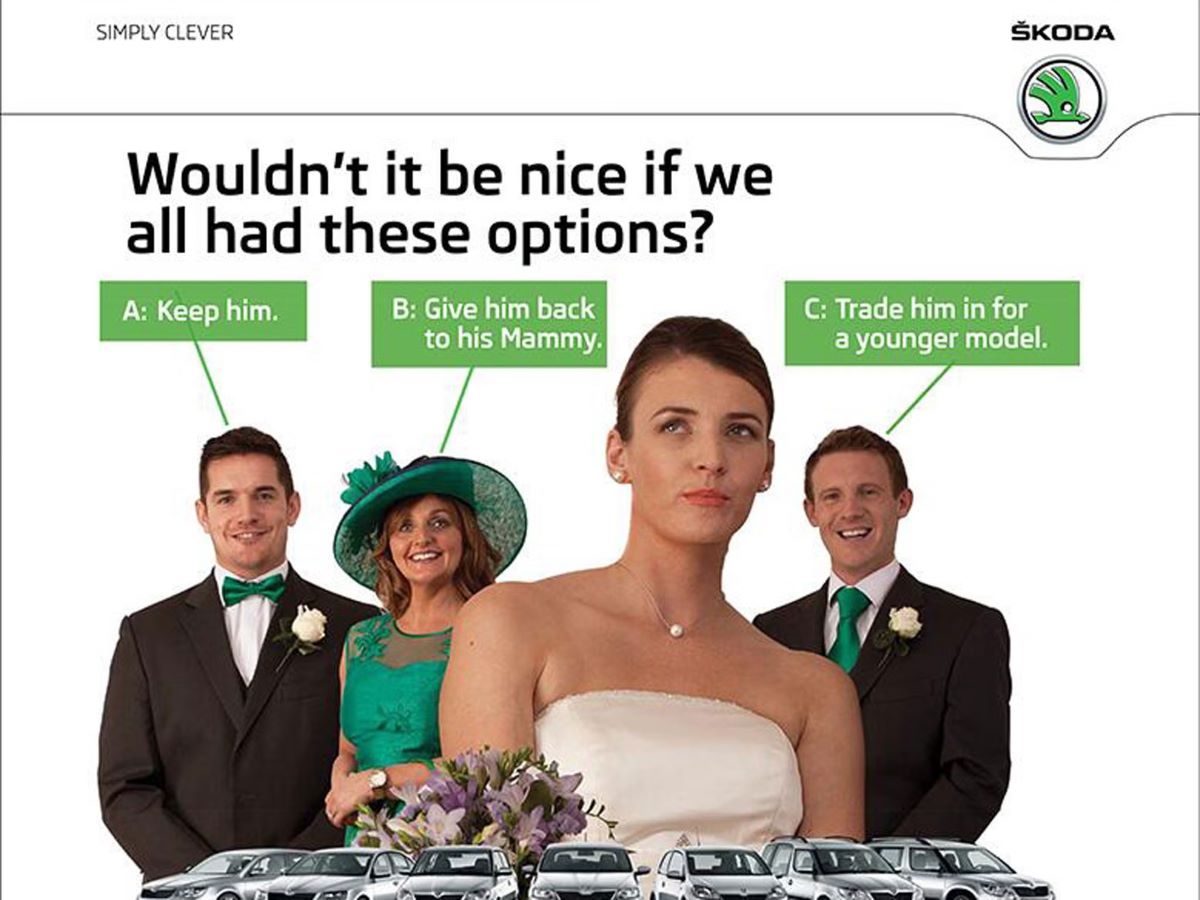
When criticized, Skoda attempted to justify their concept by announcing plans for a gender-reversed version of the ad.
However, this explanation did little to mitigate the backlash, especially given the company’s history of questionable advertising.
Previously, Skoda had faced criticism in the German market for another ad that objectified women while promoting their car’s dual-zone climate control system.
3. General Motors’ “Robot Suicide” Ad
During the 2007 Super Bowl, General Motors aired an ad that portrayed a robot jumping off a bridge after being fired for making a mistake.

The ad was condemned by the American Foundation for Suicide Prevention for trivializing suicide and presenting it as a potential response to job loss. Facing public outrage, GM removed the ad just five days after its debut.
4. Fiat’s Stalking Ad Campaign
In one of the most bizarre advertising strategies ever conceived, Fiat sent 50,000 anonymous pink love letters to Spanish women to promote the Fiat 500 (Cinquecento).
Each letter was personally addressed and contained romantic messages that suggested a recent encounter, along with a proposal for a “little experience together.”
The letter read:
“Yesterday we saw each other again. We met on the street and I noticed how you glanced interestedly in my direction. I only need to be with you for a couple of minutes, and even if it doesn’t work out, I promise you won’t forget our little experience together.”
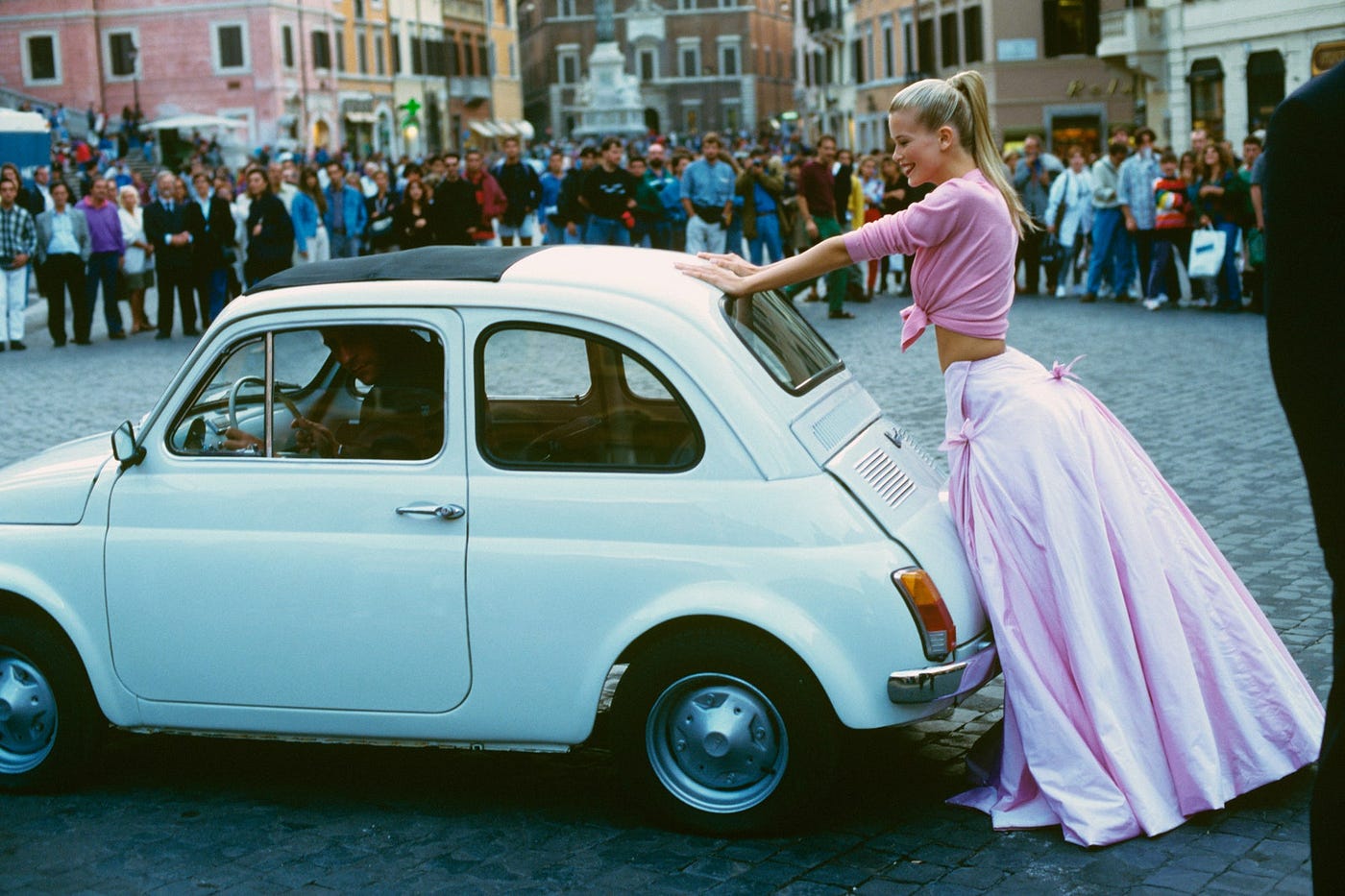
The campaign backfired spectacularly, leaving recipients feeling threatened and stalked. Many women filed police reports, and some marriages were affected due to jealousy sparked by the letters.
Fiat faced lawsuits, received a court fine, and was required to pay compensation to the women involved. They also sent apology letters to those affected, and unsurprisingly, a planned second round of letters was canceled.
5. Hyundai’s Suicide-Themed IX35 Commercial
In 2013, Hyundai released an ad promoting the hydrogen-powered IX35, but its execution was deeply insensitive.
The commercial depicted a man attempting to commit suicide by inhaling car exhaust fumes, only to fail because the vehicle’s emissions were water vapor.

The ad provoked widespread outrage, particularly from individuals who had lost loved ones to suicide. Hyundai quickly pulled the commercial and issued an apology in response to the backlash.
6. Volkswagen’s Racist Golf 8 Video
Volkswagen faced major criticism in 2020 after releasing a social media ad for the Golf 8. The video showed a large white hand pushing a black man away from a Volkswagen Golf and into a café called “Petit Colon” (Little Colonist).
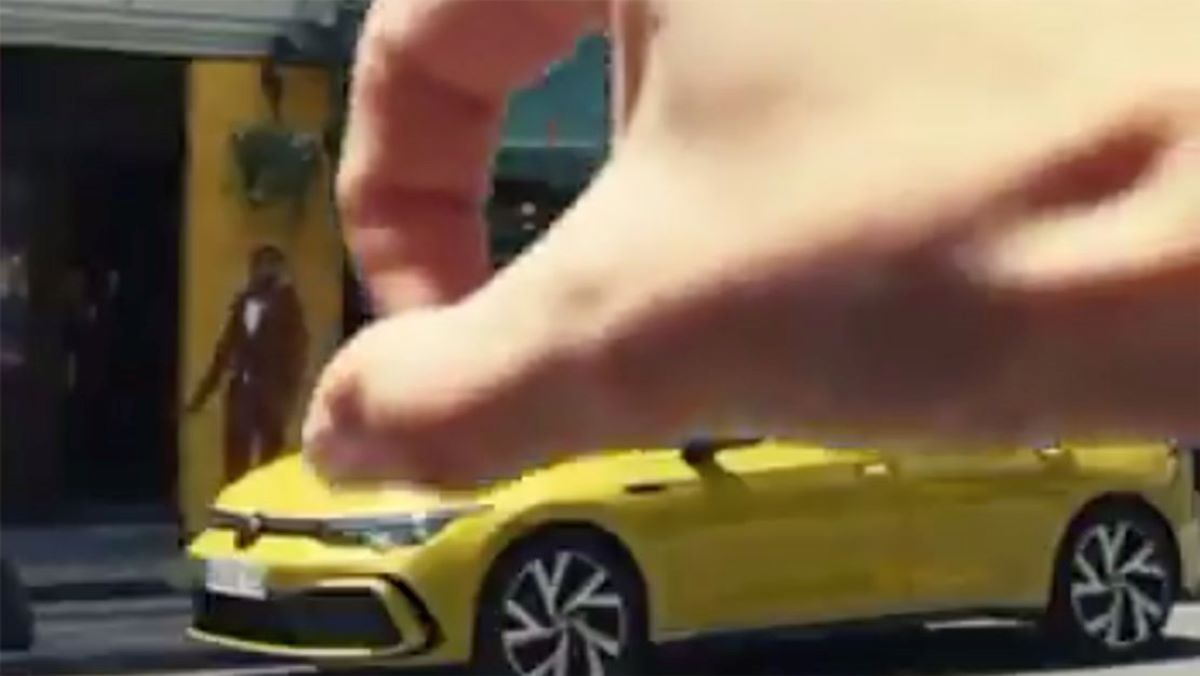
The ad sparked accusations of racism, leading Volkswagen to issue an apology and launch an internal investigation. The company acknowledged that the video contradicted civil rights advancements and pledged to address the issue within their organization.
7. Ford’s Bound Women Ad
In 2013, Ford India found itself at the center of controversy after releasing ads depicting celebrities driving cars with bound and gagged women in the trunk. One of the versions featured Paris Hilton driving with the Kardashian sisters tied up in the back.
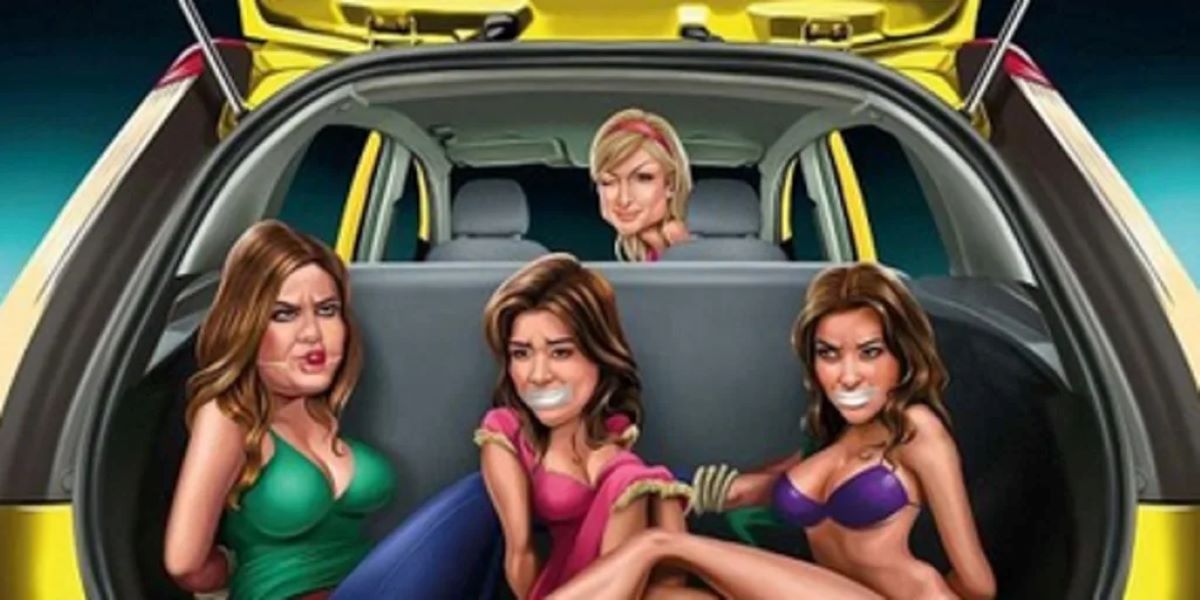
The ads, created by JWT India, were reportedly intended for an internal competition but were mistakenly made public.
The disturbing imagery sparked international outrage, forcing Ford and the ad agency to issue apologies and clarify that the ads did not align with their brand values.
8. BMW’s “You Are Not The First” Campaign
BMW launched a provocative campaign for its used car division in 2008, which drew significant criticism. The advertisement featured a young woman with a seductive expression, accompanied by the tagline:
“You know you’re not the first. But do you really care?”
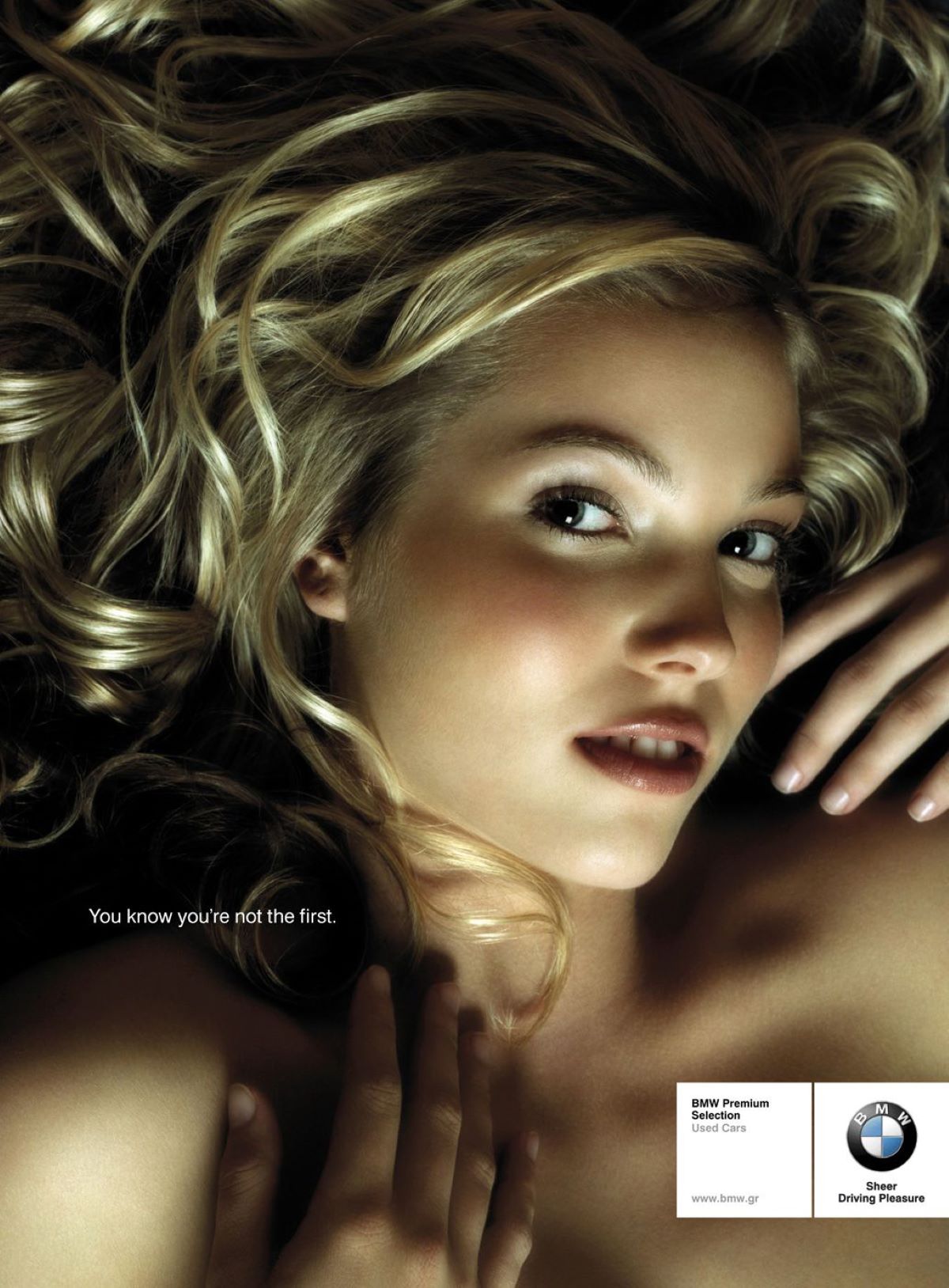
Although intended to be witty and sarcastic, the ad’s sexual innuendo could not be overlooked, leading to widespread backlash and negative press.
BMW ultimately withdrew the ad. Notably, Aston Martin had run a similar campaign around the same time, courting its own share of controversy.
9. Hertz’s “Cars Beat Your Wife” Ad
This Hertz ad sparked confusion and distaste with its poorly chosen wording. While the company didn’t mean to promote domestic violence, the headline implied otherwise: a comparison suggesting that renting from Hertz would get you home faster than your wife driving the family car.
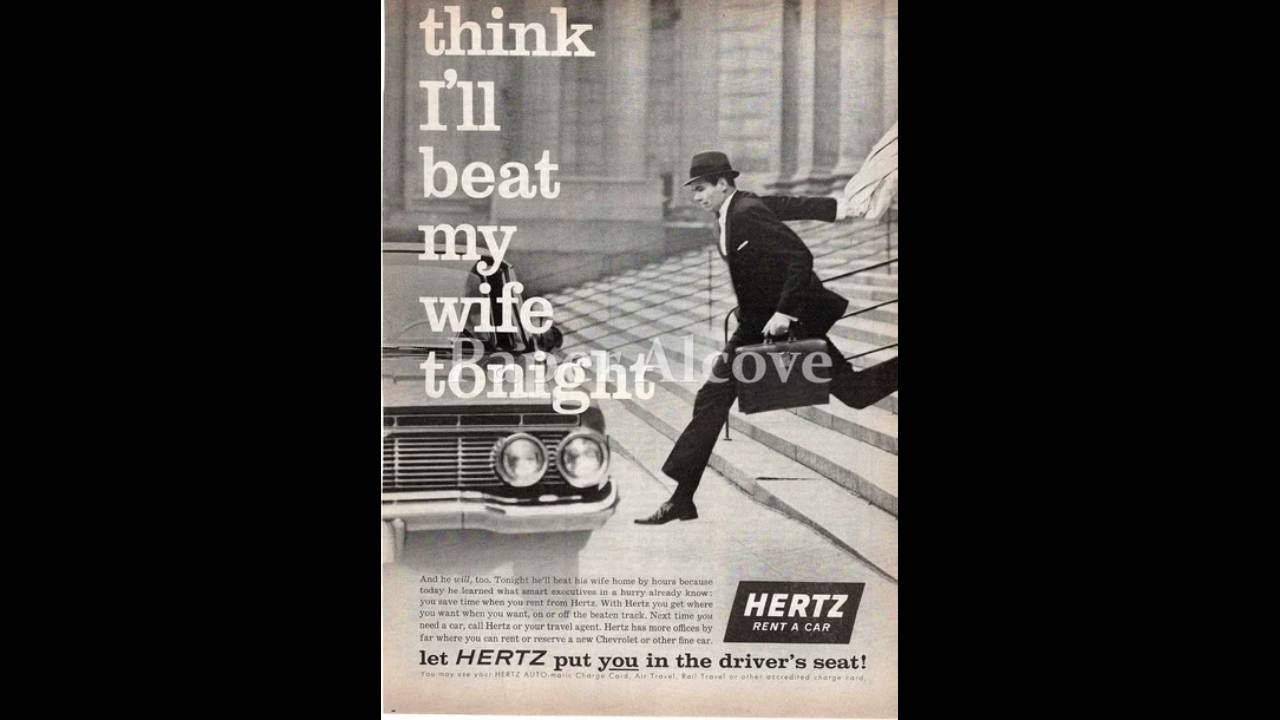
The concept relied on consumers understanding the play on words, but many were put off by the tone, and the ad was widely criticized for its insensitivity.
10. Chevrolet’s “Real People” Campaign
Chevrolet’s “Real People, Not Actors” campaign faced significant backlash over its claims of reliability. Competitors, including Ford, Toyota, and Honda, questioned the validity of Chevrolet’s statements, which led to the eventual withdrawal of the ads.
Further scrutiny revealed that some of the “real people” in the commercials were confirmed to be actors, and certain footage was reused across different commercials.
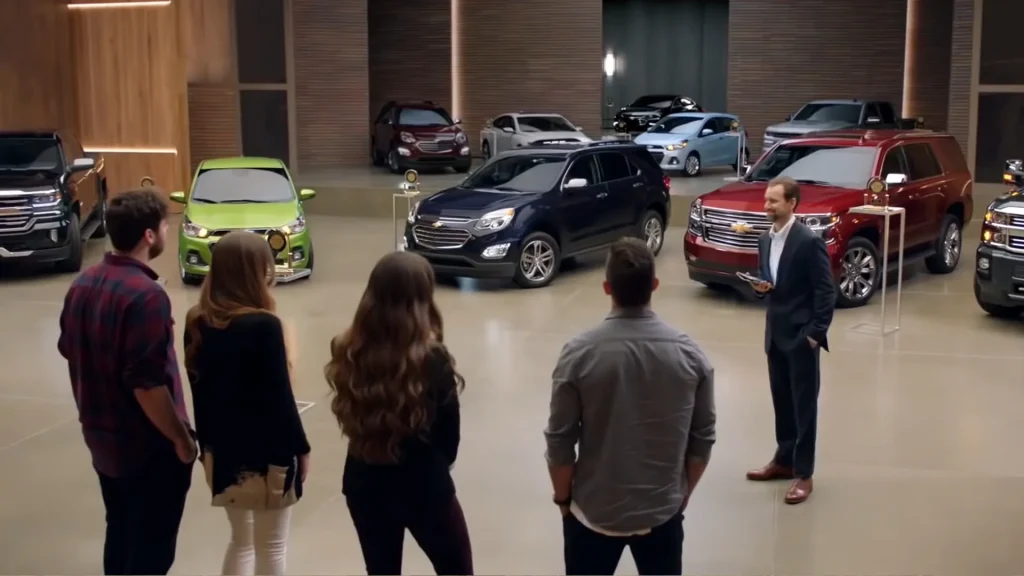
These revelations called the authenticity of the entire campaign into question. While Chevrolet later ended the campaign, the company attributed the decision to “changing world conditions.”
11. Volkswagen’s “Women Hit Things” Ad
Volkswagen released a shockingly sexist ad that perpetuated outdated stereotypes about women. The advertisement suggested that women frequently caused car accidents but reassured buyers that affordable parts repairs would keep their wallets intact.
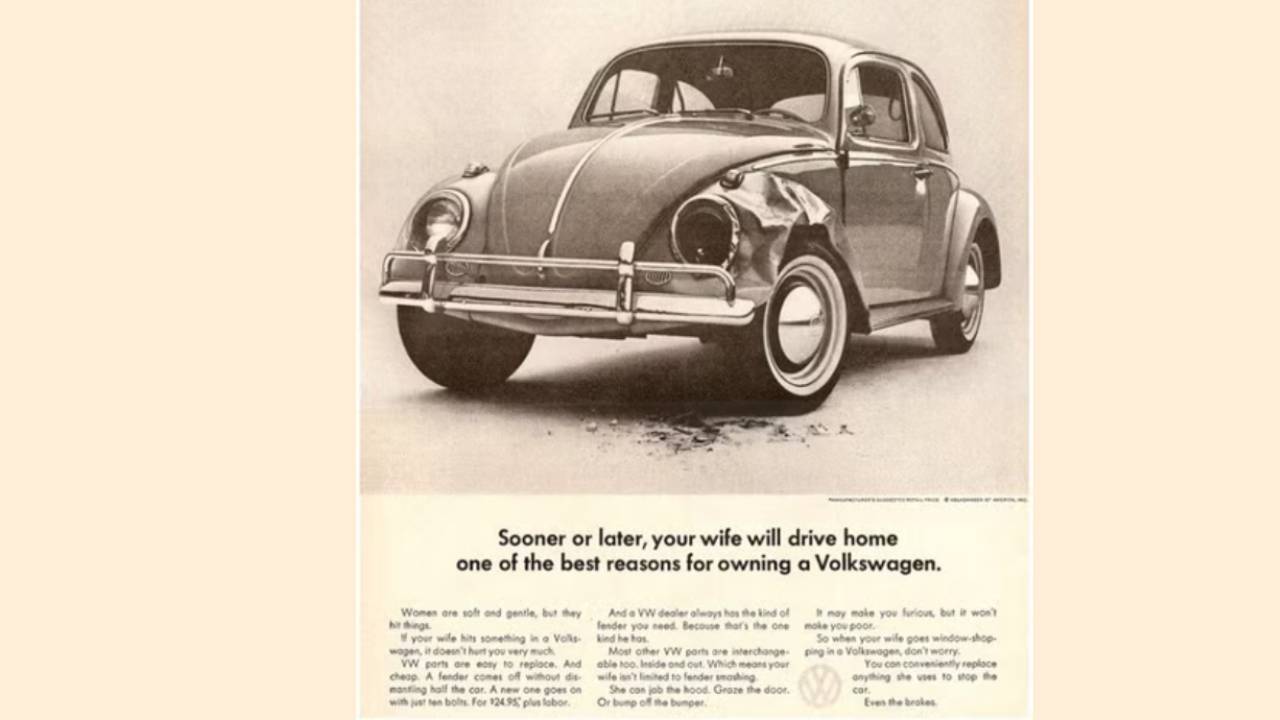
The ad’s blatant sexism drew immediate criticism for targeting half the population with harmful stereotypes, overshadowing the intended message about repair costs.
Who needs actors when the cars take center stage? For car enthusiasts, the moment these famous vehicles rolled onto the screen, everything else faded into the background. These classic shows and movies offer a nostalgic look at vehicles that continue to inspire envy in younger generations.

